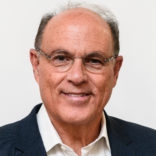CHICAGO (JTA) — I am an infectious disease epidemiologist who worked at the World Health Organization on epidemics in over 25 countries around the world.
As a physician and member of the Jewish community, I prize the Jewish teaching that places the saving of a life above all other laws and practices. It is my expert opinion that as a result of the emergence of the novel coronavirus COVID-19, the Jewish community (along with all religious and community groups) must change what we are doing immediately: We need to suspend our usual religious services and social gatherings.
Many communities have recognized the emergency and already made this change, and more and more are doing so in the hours before Shabbat begins. But others are still making small-scale changes or contemplating what to do next.
Each community and individual will have to work within their own traditions and norms. But as an epidemiologist, I know that these recommendations will save lives.
I have worked to help stop epidemics of many sizes and infectious patterns — from AIDS in Africa and Asia, to tuberculosis in San Francisco, to cholera in Somalia. I also ran the Intervention Unit for WHO, which guided countries in epidemic control and the behavioral changes needed.
All serious epidemics disrupt populations, and all require important changes to what the population does. These changes are necessary and urgent to avoid preventable deaths and the spread of infections that cause more preventable deaths. That’s why I recommend that we as Jews temporarily but immediately refrain from attending synagogues and other in-person meetings, no matter whether we live in an area where there is a known case of COVID-19 or not.
This virus is easily transmitted through droplets in the air, through hand to hand (to face) contact and on surfaces, and is much more dangerous than the seasonal flu. The seriousness and lethality of this virus to older people is exceptionally high, and other adults also have higher risks of serious illness as well as high likelihoods of causing transmission to older people.
First and foremost, we must take these steps because we value human life: our own lives, our families, and the greater community and the world around us. Stopping group contact is an essential method right now for preventing ourselves from getting this easily transmitted and highly lethal virus, and also to stop any spread to our families and the community.
Mistakes and delays and less than perfect compliance with new behaviors and practices can be deadly. We have seen this happen already in other countries, like Italy and elsewhere in Europe, and we are witnessing the active spread in Seattle and New York state. Other cities and parts of cities will see lethal outbreaks if they are late or noncompliant.
Complacency, denial and overconfidence are common among us, but there is no place for this now.
You may get pushback from your family or friends, and you may feel social pressure to go about business as usual. But this is not a time to care about that — now is the time to do as much as we can to prevent the spread of disease and death. Resist these impulses and counter arguments.
This pandemic will go on for at least several months – we still don’t know how long. As we learn more, we will be better able to make more localized and informed decisions about when and how to adjust or attempt to get back to normal, but now is the time to stop any possible potential for getting infected yourself and causing illness, perhaps serious illness to yourself — or for unknowingly infecting others, which you cannot judge by appearances of health right now.
Major global and local crises require these adjustments but also challenge us to increase our humanity and the best parts of our communal lives.
Synagogues and our religious communities present both significant challenges and value in that regard. However, we must now learn to balance our spiritual and emotional health with the real physical risks to our health today.
Therefore, unfortunately:
We must suspend our usual religious services and gatherings now.
Crowds and close contact risk invisible spread and disease to you and others, and you don’t know who might be carrying the virus.
In addition, in our daily lives:
Cancel and don’t attend other non-essential in-person meetings.
Learning can be done on conference calls, including video services like Zoom, Skype and Google Hangouts. The same goes for meetings. It may sound harsh, but remember, the risk to what we schedule isn’t simply inside the synagogue walls. It also takes place for the participants on transportation, street encounters, etc.
We must stop (“ban”) all handshaking, as well as hugs and embraces.
Even the “fist bump” and “elbow rub” puts two individuals in closer proximity than is optimal and I recommend we stop this entirely.
That doesn’t mean we can’t greet one another with respect and warmth. The heart, “lev” in Hebrew, has been taught in Jewish and other traditions to be the seat of spirituality. Consider alternatively placing your hand to your heart and bowing your head in acknowledgement of an encounter with a fellow community member. It may feel awkward at first, but can help to maintain critical social distance while honoring the encounter. It might even feel good.
Practice frequent and thorough handwashing.
I cannot overemphasize frequent and thorough handwashing throughout the day. An incredibly frequent means of spread of respiratory pathogens is a sick person touching their face, shaking hands with another person and that person then touching their face. We touch our face dozens of times a day, mostly unconsciously. This practice with an unwashed hand is enough to cause the infection through your eye, nose or mouth touched. Develop a different relationship to your hands, be aware if you have touched a door knob, railing or other surface someone may have touched. These surfaces also harbor the virus if they have been touched by someone sick or incubating the infection.
Keep social distances.
It is best to be further away from people than we usually are. This may seem weird or unusual, but it means in the grocery store, or wherever you go, try to be 6 feet or more away from others.
If you are sick with a fever or cough, stay home.
Call your doctor to determine if you really need to go in. Some medical facilities are getting full or risk being so, not everything is coronavirus and there are no treatments for now. If you are having shortness of breath or feel seriously ill, of course seek care as usual.
For those who are holding small services at home:
Don’t kiss communally shared objects.
Prayer books, mezuzot and the like should not be kissed for the duration. Even touching communal objects or surfaces should be avoided, unless you can assure handwashing immediately after.
Stop sharing challah and kiddush cups — and consider how and if you need to serve food.
It is very hard to ensure not spreading respiratory viruses by serving and sharing food.
Focus on the Jewish tradition of acts of lovingkindness.
While this is not an infection control recommendation, it’s an important Jewish value. Do you have a friend or family member or neighbor at high risk for whom you can run an errand? Many people are at home now working, in self-quarantine or just trying to stay safe. Check in on them safely. Pick up the phone and see how they are doing. See if they need an errand run for them without potentially passing on an invisible infection.
The isolation that can help protect our physical health should not erode our mental health. This important part of Jewish life can be adapted — perhaps not so easily, but we will figure out ways to do this with care and understanding.
While this is a moment for in-person synagogue activities to pause, this is an ever more critical moment for the role synagogue can play in the lives of people who are isolated, fearful or just in need of comfort. Nearly everyone is in some level of emotional and mental distress over what is happening.
There are brain processes we have as invisible to the eye, yet as powerful as microbial processes and just as crucial. Even in good times, our synagogues and religious communities represent crucial elements in our own sense of well-being and social safety net. This is all the more true during a frightening global crisis.
While nothing can fully replace human contact, our phones and computers offer a great means to connect in full safety. This is the moment for rabbis and synagogue leadership to be most mindful of preserving human life by using all technology tools — including the phone, of course — to make our communities virtual but still alive until this pandemic is under control. Which we are all now helping to ensure.
After decades of working to stop epidemics, I saw many very tough situations and many hard days, weeks and months. Epidemics follow a curve up and then back down, and eventually they end. It is up to us and our most important and trusted institutions to stop the spread now — and to keep the curve of infections and deaths as small and short as possible.
Better days are ahead. Our synagogues will again ring with beautiful voices and much joy. We will get there with these strong and proactive steps to ensure as many beautiful voices as possible are there to join us.
JTA has documented Jewish history in real-time for over a century. Keep our journalism strong by joining us in supporting independent, award-winning reporting.







